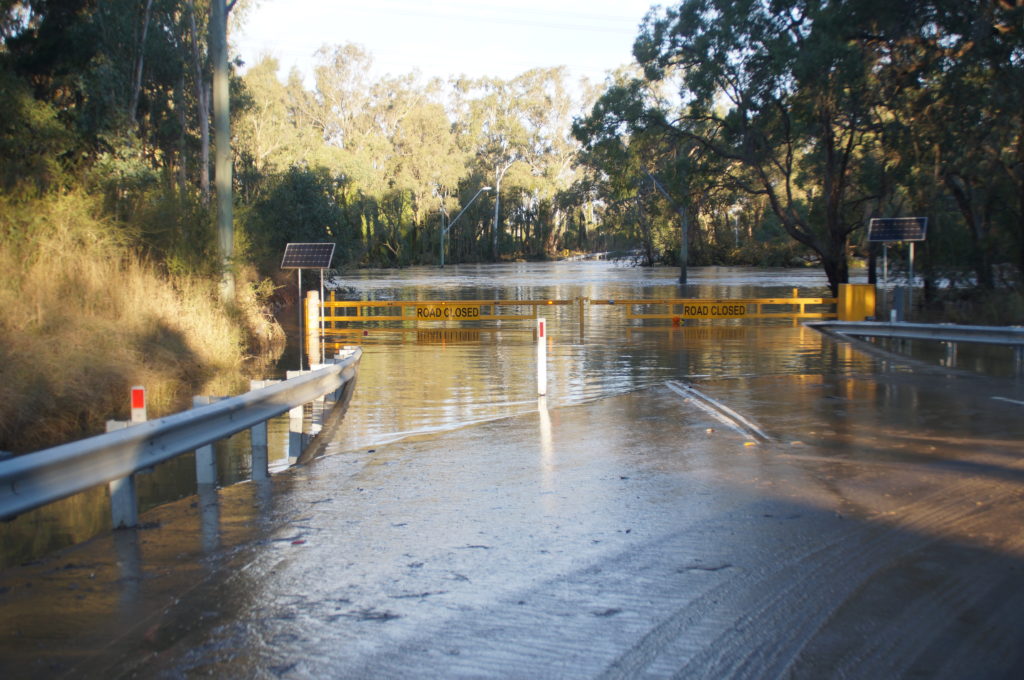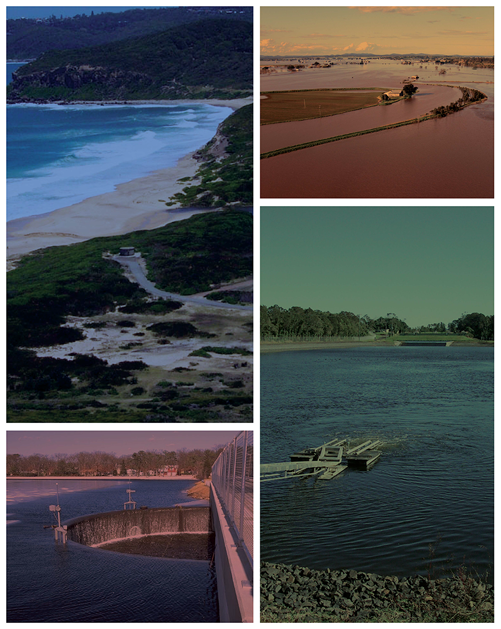The next Panel presentation will be delivered online via WebEx on Tuesday 14th July 2020 starting at 5pm sharp. Event is free for EA Members but pre-registration is required.
It is expected that as temperatures increase, extreme precipitation will increase resulting in more severe flooding. However, in Australia, there is significant evidence of decreasing flood maxima, despite increases in extreme rainfall.
This online webinar will explore changes in flood timing and magnitude from the AWRA-L. The result is a ‘worst of both worlds’ scenario whereby the rare flood events that are used in design of infrastructure are increasing, but smaller events, critical for water supply and dam storage are decreasing.

This presentation will be followed by outcomes from the study (Review of ARR Design Inputs for NSW report) to review and advise on addressing under-estimation bias being experienced when using standard ARR 2016 design event methods with default data from the ARR data hub. The outcomes of this study indicated that there is significant bias in the standard ARR 2016 design event method with default ARR data hub losses and pre-burst. Further to this work a regression equation is being developed that samples BoM data including AWRA-L.
Using AWRA-L for investigating Climate Change by Conrad Wasko
Conrad Wasko is currently a McKenzie Fellow at the University of Melbourne. Conrad has over ten years experience in both consulting and research. Conrad’s research has won him numerous awards including the MSSANZ Early Career Research Excellence Award and the Lorenz G. Straub award for best PhD thesis globally in water engineering. He has contributed to the Australian national guidelines on flood estimation and his current research focuses on understanding the effects of climate change on precipitation extremes and flooding.
NSW design losses by Mark Babister
Mark Babister is a national leader in floodplain management and analysis. Mark has successfully completed numerous hydrologic, hydraulic, floodplain management, infrastructure and dam studies. Mark has had key roles in the development of a number of national best practice documents. Mark is an editor of the 2016 Edition of Australian Rainfall and Runoff. Mark has undertaken a number of expert advice roles including the Queensland floods commission of inquiry, Natural Disaster Insurance Review, Ministerial Advisory Council for the Wivenhoe Manual, and the Brisbane River Catchment Flood Study – Independent Panel of Experts.
Remember to pre-register for this event.



Leave a Reply